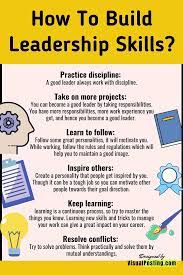Introduction:
Service learning is a unique and highly effective approach to education that combines academic instruction with community involvement. By engaging in projects and activities that benefit society, students not only gain valuable insights into the real-world applications of their studies but also hone essential leadership skills. In this article, we will discuss 10 ways service learning helps build leadership skills for students of all ages.
1. Enhancing communication skills:
Service learning projects require students to interact with diverse groups of individuals, including peers, community members, and experts in various fields. This exposure helps students develop strong communication skills that are vital for effective leadership.
2. Developing problem-solving abilities:
By working on real-world issues, students participating in service learning projects have ample opportunities to practice their problem-solving abilities. Tackling complex community problems helps them learn how to assess situations, think critically, and implement solutions – essential traits for any leader.
3. Encouraging collaboration and teamwork:
Service learning projects typically involve group efforts, setting the stage for students to collaborate with fellow classmates and community members. This fosters teamwork skills which are crucial for leaders who often rely on the strength of unified groups to achieve common goals.
4. Building empathy:
Service learning initiatives expose students to various challenges faced by communities and help them understand the struggles of others from different walks of life. Building empathy enables young leaders to connect with people better and make more informed decisions.
5. Promoting responsible decision-making:
Through hands-on experiences, students participating in service learning projects learn the importance of making responsible decisions not just for themselves, but also for their team and the community they serve.
6. Boosting confidence:
As students contribute positively to society through service learning initiatives, they gain a sense of self-efficacy and accomplishment. This heightened confidence can empower them to take charge in various situations and assume leadership roles with greater ease.
7. Nurturing adaptability and resilience:
Working in different environments and facing unexpected challenges during service learning projects teach students to adapt to changing situations and develop resilience – both essential traits for successful leadership.
8. Strengthening time management and organizational skills:
Successfully executing service learning projects often involves juggling multiple responsibilities, setting priorities, and meeting deadlines. This provides an excellent opportunity for students to enhance their time management and organizational skills, which are crucial in the life of any leader.
9. Expanding cultural competence:
Service learning exposes students to diverse cultures and communities, broadening their horizons and promoting increased cultural competence – a key trait for today’s global leaders.
10. Inspiring civic engagement:
Service learning instills the value of active citizenship in students, thereby inspiring a lifelong commitment to making a difference in their communities. When translated into professional settings, this spirit of civic engagement can help individuals emerge as transformative leaders.
Conclusion:
Service learning offers students invaluable opportunities to not only put classroom knowledge into practice but also refine a wide range of leadership skills. By participating in meaningful community projects, young people can transform both personally and professionally, becoming better leaders prepared to make a difference in the world around them.




